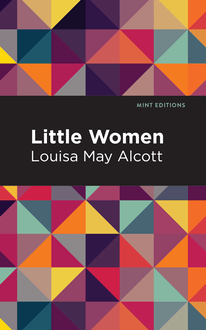-
 Univers
Univers
-
 Ebooks
Ebooks
-
 Livres audio
Livres audio
-
 Presse
Presse
-
 Podcasts
Podcasts
-
 BD
BD
-
 Documents
Documents
-
- Cours
- Révisions
- Ressources pédagogiques
- Sciences de l’éducation
- Manuels scolaires
- Langues
- Travaux de classe
- Annales de BEP
- Etudes supérieures
- Maternelle et primaire
- Fiches de lecture
- Orientation scolaire
- Méthodologie
- Corrigés de devoir
- Annales d’examens et concours
- Annales du bac
- Annales du brevet
- Rapports de stage
La lecture à portée de main
Vous pourrez modifier la taille du texte de cet ouvrage
Découvre YouScribe en t'inscrivant gratuitement
Je m'inscrisDécouvre YouScribe en t'inscrivant gratuitement
Je m'inscrisEn savoir plus
Vous pourrez modifier la taille du texte de cet ouvrage
En savoir plus

Description
The Heavenly Twins (1893) is a novel by Sarah Grand. Written the same year Grand moved to London, divorced her husband, and created a new identity for herself, The Heavenly Twins explores the feminist ideal of the New Woman. As a pioneering feminist whose marriage ended in bitter disappointment, Grand sought to address the frustrations of women whose every move in life was measured against the expectations of a patriarchal society. In her novel, she explores gender dysphoria, sexually transmitted diseases, and contraception as aspects of a wider feminine experience largely ignored in much of English literature. To be a young woman in Victorian England, one grows accustomed to the indignities of daily life. Despite this, Evadne, Angelica, and Edith do their best to live happily while keeping their families satisfied. Evadne struggles to match the realities of married life with the expectations of traditional society. Meanwhile, Edith enters a relationship with a man who seems well-intentioned but harbors a dangerous secret. Angelica, their friend, bristles against the strictures of womanhood. With the help of her twin brother Diavolo, she explores the freedoms afforded young men for nothing more than the gender they were assigned at birth. Dissatisfied with her life, she begins dressing as a man and uses her new identity to expand her social and romantic opportunities. As their lives take tragic and disappointing turns, they begin to understand how so many women end up trapped by marriage and motherhood, unable to pursue their dreams. With a beautifully designed cover and professionally typeset manuscript, this edition of Sarah Grand’s The Heavenly Twins is a classic work of Irish literature reimagined for modern readers.
Sujets
Informations
| Publié par | Mint Editions |
| Date de parution | 28 mai 2021 |
| Nombre de lectures | 0 |
| EAN13 | 9781513288277 |
| Langue | English |
| Poids de l'ouvrage | 1 Mo |
Informations légales : prix de location à la page 0,0750€. Cette information est donnée uniquement à titre indicatif conformément à la législation en vigueur.
Extrait
The Heavenly Twins
Sarah Grand
The Heavenly Twins was first published in 1893.
This edition published by Mint Editions 2021.
ISBN 9781513283258 | E-ISBN 9781513288277
Published by Mint Editions ®
minteditionbooks.com
Publishing Director: Jennifer Newens
Design & Production: Rachel Lopez Metzger
Project Manager: Micaela Clark
Typesetting: Westchester Publishing Services
C ONTENTS B OOK I. C HILDHOODS AND G IRLHOODS I II III IV V VI VII VIII IX X XI XII XIII XIV XV XVI XVII XVIII XIX XX XXI XXII B OOK II. A M ALTESE M ISCELLANY I II III IV V VI VII VIII IX X XI XII XIII B OOK III. D EVELOPMENT AND A RREST OF D EVELOPMENT I II III IV V VI VII VIII IX X XI XII XIII XIV XV B OOK IV. T HE T ENOR AND THE B OY — AN I NTERLUDE I II III IV V VI VII VIII IX X XI XII XIII XIV XV B OOK V. M RS . K ILROY OF I LVERTHORPE I II III IV V VI VII VIII B OOK VI. T HE I MPRESSIONS OF D R . G ALBRAITH I II III IV V VI VII VIII IX X XI XII XIII XIV XV XVI XVII XVIII XIX
BOOK I
CHILDHOODS AND GIRLHOODS
The spring is the pleasantest of the seasons; and the young of most animals, though far from being completely fashioned, afford a more agreeable sensation than the full grown; because the imagination is entertained with the promise of something more, and does not acquiesce in the present object of the sense.
— B URKE ON THE S UBLIME
I am inclined to agree with Francis Galton in believing that education and environment produce only a small effect on the mind of anyone, and that most of our qualities are innate.
— D ARWIN
I
A t nineteen Evadne looked out of narrow eyes at an untried world inquiringly. She wanted to know. She found herself forced to put prejudice aside in order to see beneath it, deep down into the sacred heart of things, where the truth is, and the bewildering clash of human precept with human practice ceases to vex. And this not of design, but of necessity. It was a need of her nature to know. When she came across something she did not understand, a word, a phrase, or an allusion to a phase of life, the thing became a haunting demon only to be exorcised by positive knowledge on the subject. Ages of education, ages of hereditary preparation had probably gone to the making of such a mind, and rendered its action inevitable. For generations knowledge is acquired, or, rather, instilled by force in families, but, once in a way, there comes a child who demands instruction as a right; and in her own family Evadne appears to have been that child. Not that she often asked for information. Her faculty was sufficient to enable her to acquire it without troubling herself or anybody else, a word being enough on some subjects to make whole regions of thought intelligible to her. It was as if she only required to be reminded of things she had learnt before. Her mother said she was her most satisfactory child. She had been easy of education in the schoolroom. She had listened to instruction with interest and intelligence, and had apparently accepted every article of faith in God and man which had been offered for her guidance through life with unquestioning confidence; at least she had never been heard to object to any time-honoured axiom. And she did, in fact, accept them all, but only provisionally. She wanted to know. Silent, sociable, sober, and sincere, she had walked over the course of her early education and gone on far beyond it with such ease that those in authority over her never suspected the extent to which she had outstripped them.
It was her father who struck the keynote to which the tune of her early intellectual life was set. She was about twelve years old at the time, and they were sitting out on the lawn at Fraylingay one day after dinner, as was their wont in the summer—he, on this occasion, under the influence of a good cigar, mellow in mind and moral in sentiment, but inclining to be didactic for the moment because the coffee was late; she in a receptive mood, ready to gather silently, and store with care, in her capacious memory any precept that might fall from his lips, to be taken out and tried as opportunity offered.
“Where is your mother?” he asked.
“I don’t know, father,” Evadne answered. “I think she is in the drawing room.” ‘
“Never say you think , my dear, about matters of fact,” he said. “When it is possible to know it is your business to find out, and if you cannot find out you must say you don’t know. It is moral cowardice, injurious to yourself, not to own your ignorance; and you may also be misleading, or unintentionally deceiving, someone else.”
“How might the moral cowardice of not owning my ignorance be injurious to myself, father?” she asked.
“Why, don’t you see,” he answered, “you would suffer in two ways? If the habit of inaccuracy became confirmed, your own character would deteriorate; and by leading people to suppose that you are as wise as themselves, you lose opportunities of obtaining useful information. They won’t tell you things they think you know already.”
Evadne bent her brows upon this lesson and reflected; and doubtless it was the origin of the verbal accuracy for which she afterward became notable. Patient investigation had always been a pleasure, but from that time forward it became a principle also. She understood from what her father had said that to know the facts of life exactly is a positive duty; which, in a limited sense, was what he had intended to teach her; but the extent to which she carried the precept would have surprised him.
Her mind was prone to experiment with every item of information it gathered, in order to test its practical value; if she could turn it to account she treasured it; if not, she rejected it, from whatever source it came. But she was not herself aware of any reservation in her manner of accepting instruction. The trick was innate, and in no way interfered with her faith in her friends, which was profound. She might have justified it, however, upon her father’s authority, for she once heard him say to one of her brothers: “Find out for yourself, and form your own opinions,” a lesson which she had laid to heart also. Not that her father would have approved of her putting it into practice. He was one of those men who believe emphatically that a woman should hold no opinion which is not of masculine origin, and the maxims he had for his boys differed materially in many respects from those which he gave to his girls. But these precepts of his were, after all, only matches to Evadne which fired whole trains of reflection, and lighted her to conclusions quite other than those at which he had arrived himself. In this way, however, he became her principal instructor. She had attached herself to him from the time that she could toddle, and had acquired from his conversation a proper appreciation of masculine precision of thought. If his own statements were not always accurate it was from no want of respect for the value of facts; for he was great on the subject, and often insisted that a lesson or principle of action is contained in the commonest fact; but he snubbed Evadne promptly all the same on one occasion when she mentioned a fact of life, and drew a principle of action therefrom for herself. “Only confusion comes of women thinking for themselves on social subjects,” he said, “You must let me decide all such matters for you, or you must refer them to your husband when you come under his control.”
Evadne did not pay much attention to this, however, because she remembered another remark of his with which she could not make it agree. The remark was that women never had thought for themselves, and that therefore it was evident that they could not think, and that they should not try. Now, as it is obvious that confusion cannot come of a thing that has never been done, the inaccuracy in one or other of these statements was glaring enough to put both out of the argument. But what Evadne did note was the use of the word control.
As she grew up she became her father’s constant companion in his walks, and, flattered by her close attention, he fell into the way of talking a good deal to her. He enjoyed the fine flavour of his own phrase-making, and so did she, but in such a silent way that nothing ever led him to suspect it was having any but the most desirable effect upon her mind. She never attempted to argue, and only spoke in order to ask a question on some point which was not clear to her, or to make some small comment when he seemed to expect her to do so. He often contradicted himself, and the fact never escaped her attention, but she loved him with a beautiful confidence, and her respect remained unshaken.
When she had to set herself right between his discrepancies she did not dwell on the latter as faults in him, but only thought of how wise he was when he warned her to be accurate, and felt grateful. And in this way she formed her mind upon his sayings; and as a direct result of the long, informal, generally peripatetic lectures to which she listened without prejudice, and upon which she brought unsuspected powers of discrimination to bear, he had unconsciously made her a more logical, reasoning, reasonable being than he believed it possible for a woman to be. Poor papa! All that he really knew of his most interesting daughter was that she was growing up a good child, physically strong and active, morally well educated, with a fortunately equable temper; and that she owed a great deal to him. What, precisely, was never defined. But when the thought of his kindness recurred to him it always suffused him with happiness.
He was a portly man, with a place in the country, and a house in town; not rich for his position, but well off; a magistrate, and much respected; well educated in the ideas of the ancients, with whom his own ideas on many subjects stopped short, and hardly to be called intellectual; a moderate Churchman, a bigoted Conservative, narrow and strongly prejudiced rather than highly pr
-
 Univers
Univers
-
 Ebooks
Ebooks
-
 Livres audio
Livres audio
-
 Presse
Presse
-
 Podcasts
Podcasts
-
 BD
BD
-
 Documents
Documents
-
Jeunesse
-
Littérature
-
Ressources professionnelles
-
Santé et bien-être
-
Savoirs
-
Education
-
Loisirs et hobbies
-
Art, musique et cinéma
-
Actualité et débat de société
-
Jeunesse
-
Littérature
-
Ressources professionnelles
-
Santé et bien-être
-
Savoirs
-
Education
-
Loisirs et hobbies
-
Art, musique et cinéma
-
Actualité et débat de société
-
Actualités
-
Lifestyle
-
Presse jeunesse
-
Presse professionnelle
-
Pratique
-
Presse sportive
-
Presse internationale
-
Culture & Médias
-
Action et Aventures
-
Science-fiction et Fantasy
-
Société
-
Jeunesse
-
Littérature
-
Ressources professionnelles
-
Santé et bien-être
-
Savoirs
-
Education
-
Loisirs et hobbies
-
Art, musique et cinéma
-
Actualité et débat de société
- Cours
- Révisions
- Ressources pédagogiques
- Sciences de l’éducation
- Manuels scolaires
- Langues
- Travaux de classe
- Annales de BEP
- Etudes supérieures
- Maternelle et primaire
- Fiches de lecture
- Orientation scolaire
- Méthodologie
- Corrigés de devoir
- Annales d’examens et concours
- Annales du bac
- Annales du brevet
- Rapports de stage













